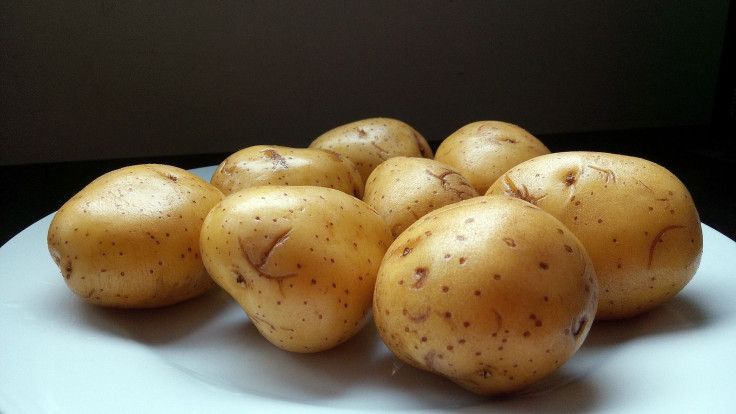3 To 4 Servings Of Baked Or Mashed Potatoes A Week Increases High Blood Pressure Risk

Every year, Americans consume roughly 110 pounds of potatoes per person, and the number keeps growing. Research teams from Brigham and Women’s Hospital and Harvard Medical School took a closer look into how potatoes fit into the nation’s diet and how that influences our overall health. Their findings, published in the British Medical Journal, revealed a potential pitfall for potato lovers; high blood pressure.
For the study, researchers analyzed 20 years worth of dietary data from the Nurses’ Health Study, which included 121,700 women between ages 30 and 55; and the Health Professionals Follow-up Study, which included 51,529 men between ages 40 and 75. After recording what each person ate on a weekly basis, researchers marked who was diagnosed with high blood pressure.
Women who ate four or more servings a week of baked, boiled, or mashed potatoes had an increased risk of high blood pressure compared to those who had less than one serving a month. But when researchers took French fries into consideration, they found an increased risk of high blood pressure among both men and women.
“Potatoes are high in potassium which usually helps blood pressure,” Dr. Caroline Cederquist, a bariatric physician who specializes in weight loss and metabolism and founder of diet delivery service bistroMD, who was not involved in the study, explained to Medical Daily. “But, potatoes are also starchy, high in carbs and their effect on blood sugar can contribute to insulin resistance, making them less of a good choice as opposed to other vegetables.”
Potatoes have a high glycemic index, which is a measurement used to rate how carbohydrates will impact a person’s blood pressure. According to Harvard Medical School, the lower a food’s glycemic index, the less it affects blood sugar and insulin levels. High levels can lead to Insulin resistance, a common condition that may cause elevated blood pressure as higher insulin levels lead to sodium retention. Because of this, potatoes can trigger a sharp rise in blood sugar levels, which may be why a potato-laden diet leads to hypertension over time.
Feeding A Healthy Heart
“Diet is important because we know that sodium can elevate blood pressure while foods higher in potassium can lower it,” Cederquist said. “A diet that will improve this very common condition of insulin resistance is one lower in starches and that replaces starchy vegetables with non-starchy ones like broccoli, cauliflower, green beans, squash, and salads.”
According to the American Heart Association, uncontrolled high blood pressure, also called the “silent killer” because it doesn’t present noticeable symptoms, can lead to injury or death. Damage may occur to the heart and arteries, which can lead to heart attack, stroke, and kidney damage if left untreated. After uncovering the link between high potato consumption and high blood pressure, researchers believe replacing potatoes with a different vegetable can decrease the threat.
“A healthy diet is a crucial strategy for keeping high blood pressure at bay,” Jillian Tuchman, the director of nutrition at wellness company Aloha, and a registered dietitian who was not involved in the study, told Medical Daily. “One of the biggest contributors to high blood sugar is sodium. When we don't consume enough potassium, our bodies retain sodium and the retention of sodium leads to an increase in blood pressure.”
For those who have a hard time letting go of their love for potatoes, Tuchman recommends trying out a mashed potato recipe that utilizes half the amount of white potatoes and then substituting the other half with cauliflower or the root vegetable celeriac. If you prefer baked potatoes, try to limit yourself to eating only half of the potato but make sure to also eat the skin because that’s where most of the heart-healthy fiber is located.
“Mashed potatoes that have been prepared with heaps of butter and cream add insult to injury,” Tuchman said. “Opt for a few dollops of nonfat or low fat Greek yogurt instead of traditional sour cream, or choose unprocessed flaked sea salt and a high quality fruit-forward olive oil — big flavor means you'll need less. Tuchman concluded. “Moderation is a tricky thing as it can mean different things to different people. If you're at risk for high blood pressure, substitute white potatoes for sweet potatoes or winter squash. And if white potatoes make up part of your everyday diet, and you're not ready to give them up, reduce intake gradually. Small steps still count.”
Source: Forman JP, Borgi L, Rim EB, and Willett WC. Potato intake and incidence of hypertension: results from three prospective US cohort studies. BMJ . 2016.



























